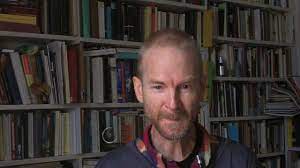Lucy Webster, who is currently translating Andrei Astvatsaturov’s People in Nude part-funded by a RusTrans bursary, earlier this month attended the Bristol Translates! translation summer school at the University of Bristol (July 5th-8th, 2021). Here she tells us all about her experience and why she’d go back next year…
This year the 2021 Bristol Translates Summer School—a three-day course of language-specific literary translation workshops followed by one day of panel discussions and presentations—was held online at the beginning of July. The Russian workshops were led by some of the biggest stars in the Russian translation world—Anna Gunin, Oliver Ready and Robert Chandler, and I was thrilled to be given the opportunity to learn from them.
From a technical perspective, the organisers did a fantastic job dealing with any issues people had. I didn’t experience problems personally, but I do think some attendees were left cursing Microsoft Teams. Of course, as with any virtual alternative, the real downside to this format was not being able to sit together in our groups and go grab coffee or dinner at the end of the day, which would have given us some extra time to get to know each other without having to continue staring at our screens. However, the Teams format did mean that there were attendees from across the globe; some like me, who perhaps wouldn’t have been able to afford or physically reach the in-person event, were enabled to join in the fun.
During the workshops we were presented with texts the tutors were either currently working on or had worked on in the past. We discussed the texts first as a whole class before splitting up into smaller working groups to produce our own versions. After spending the last year working at home alone and living mostly inside my own head, the co-translation exercises were wonderfully refreshing. The texts were by no means straightforward, and all had their peculiarities. We had some brilliant conversations regarding the most appropriate ways to express Russian euphemisms; how best to render ‘несообщительный’ (unsociable); and we explored challenges like translating a passage in which one character taught another the alphabet through alliteration. How to translate words beginning with, for example, the Russian letter (Б) when their English translations absolutely do not start with the equivalent English letter (B)? We would then read our draft translations back to the group. At first, this was a daunting prospect, but it soon emerged as a really worthwhile exercise in self-confidence.

Robert Chandler
One of the main things all three tutors impressed upon us was the importance of hearing both your translation and the original text read aloud by someone other than yourself and, ideally, someone who has absolutely no connection to the text. We were lucky enough to have two native Russian speakers in our group, and Anna Gunin’s husband also read out one of the original extracts. Their readings really helped us to get a feel for the rhythm and voice of the originals. Similarly, and although this may seem like an obvious point it’s worth emphasizing; consulting native speakers of the source language, who are also translators or writers themselves, can have an enormously beneficial impact on your work. As someone whose network of such contacts is currently rather small, getting to hear how the Russian-speaking members of our group sometimes understood a word differently really drove home the fact that this is what I’m missing. Additionally, after our session with Robert Chandler, my notebook was filled with reminders such as, ‘ATTEND TO ASPECT!’, ‘BE ADVENTUROUS WITH VERBS!’, and ‘DON’T TAKE ANGLICISMS FOR GRANTED!’, each of which had been accompanied by an eye-opening anecdote about Robert’s own past translation mishaps.
I’m currently working on pitching a sample from Andrei Astvatsaturov’s first novel People in Nude as part of the RusTrans ‘Publish: Studying Translation Dynamically’ study and so was also on the lookout for any pointers I could apply to this project. This mostly came from Ros Schwartz’s ‘Pitching to Publishers’ presentation, in which she gave some detailed and very sensible advice. For example:
- sending a hard copy of your pitching pack to publishers is much better than sending an email
- you should aim to send out pitches on a rolling programme of 4-5 letters every 2-3 weeks.
Ros also emphasised that you should include a resume outlining why you are the right translator for the job rather than just a CV containing your work history. I will absolutely be remembering this when I send out another batch of pitches at the end of August.
Overall, the Bristol Translates Summer School was an intense but invaluable experience that has helped me to unwire (another word much-used at Bristol Translates, meaning to disconnect and relax) and refocus my approach to literary translation, while motivating myself to move forward with some of my other, currently dormant projects. I would wholeheartedly recommend it to both industry newcomers (like me) and experienced translators alike.
Read an extract from Lucy’s translation of People in Nude here!

